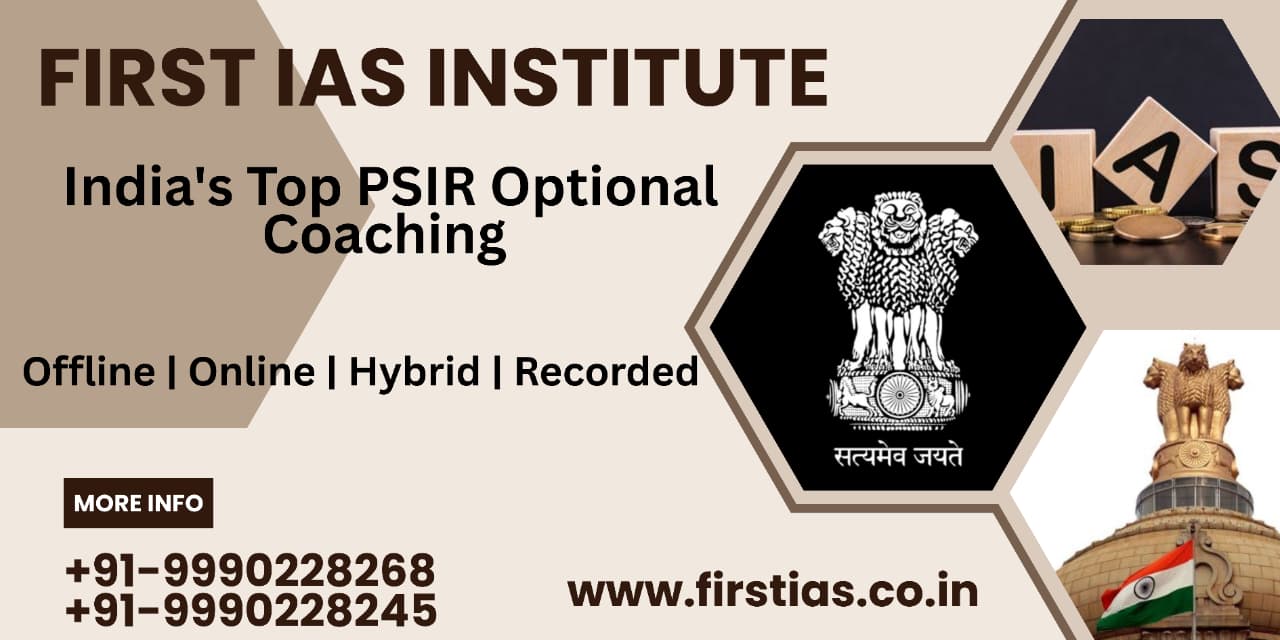PSIR Paper I: Political Theory and Indian Politics
This paper builds the theoretical foundation of the subject. Section A deals with the core philosophies and ideas that have shaped political thought, while Section B applies these concepts to the framework of Indian government and politics.
Section A: Political Theory
1. Political Theory: Meaning and Approaches
Explores the evolution of political theory and examines various approaches to its study, including normative, historical, and empirical methods.
2. Theories of the State
Covers diverse perspectives on the nature and function of the state, including Liberal, Neoliberal, Marxist, Pluralist, Post-colonial, and Feminist theories.
3. Justice, Equality, and Rights
Delves into the conceptual analysis of core political values: Justice (Rawls' theory, critiques), Equality (social, political, economic relationships), and Rights (meaning, theories, different generations of rights).
4. Democracy and Power
Examines classical and contemporary theories of democracy, different models of representation, and the concepts of power, hegemony, and ideology.
5. Political Ideologies
A study of major political ideologies including Liberalism, Socialism, Marxism, Fascism, Gandhism, and Feminism.
6. Western Political Thought
Traces the evolution of political philosophy through key thinkers: Plato, Aristotle, Machiavelli, Hobbes, Locke, John S. Mill, Marx, Gramsci, and Hannah Arendt.
Section B: Indian Government and Politics
7. Indian Nationalism
Focuses on the political strategies of India's freedom struggle, the evolution of different ideological strands, and the role of peasant and workers' movements.
8. Making of the Indian Constitution
Analyzes the legacies of the British rule, the philosophical underpinnings of the Constitution, and the core features like the Preamble, Fundamental Rights, and Directive Principles.
9. Organs of Government & Accountability
A detailed look at the roles and functions of the legislature, executive, and judiciary. Also covers the significance of the judiciary, judicial review, and parliamentary sovereignty.
10. Federalism, Planning, and Economic Development
Examines the constitutional provisions and political economy of Indian federalism, including the role of planning, decentralization, and local governance.
PSIR Paper II: Comparative Politics and International Relations
This paper expands the scope to the global stage. Section A introduces methods for comparing political systems and fundamental theories of international relations. Section B focuses specifically on India's engagement with the world.
Section A: Comparative Political Analysis and International Politics
1. Comparative Politics & Political Economy
Covers the nature and major approaches to comparing political systems and the global political economy, including the significance of globalization.
2. State in Comparative Perspective
Analyzes the characteristics of political systems in advanced industrial and developing societies, focusing on the changing nature of the state.
3. Theories of International Relations
A crucial topic covering major theoretical schools: the Realist school (Morgenthau), Liberal approaches, Marxist theories (Immanuel Wallerstein), and constructivist perspectives.
4. Key Concepts in International Relations
Explores the National Interest, security and power dynamics, the balance of power, and the role of international law and morality in state behavior.
Section B: India and the World
5. India's Foreign Policy
Examines the determinants of India's foreign policy, its historical evolution from non-alignment to the current era, and its key institutions.
6. India’s Contribution to Global Movements
Focuses on India's role in the Non-Aligned Movement (NAM), its arguments for a New International Economic Order, and its contributions to UN Peacekeeping.
7. India and its Neighbourhood
Covers India's regional cooperation efforts (SAARC), its policies toward South Asia, and its complex relationships with countries like China and Pakistan.
8. India and the Global Powers
Analyzes India's strategic partnerships and bilateral relationships with major global actors, including the USA, EU, Japan, and Russia.
9. India in the Global System
Examines India's role in the United Nations system, its stance on issues like nuclear proliferation (NPT, CTBT), and its engagement in major international economic bodies like the WTO and G20.

